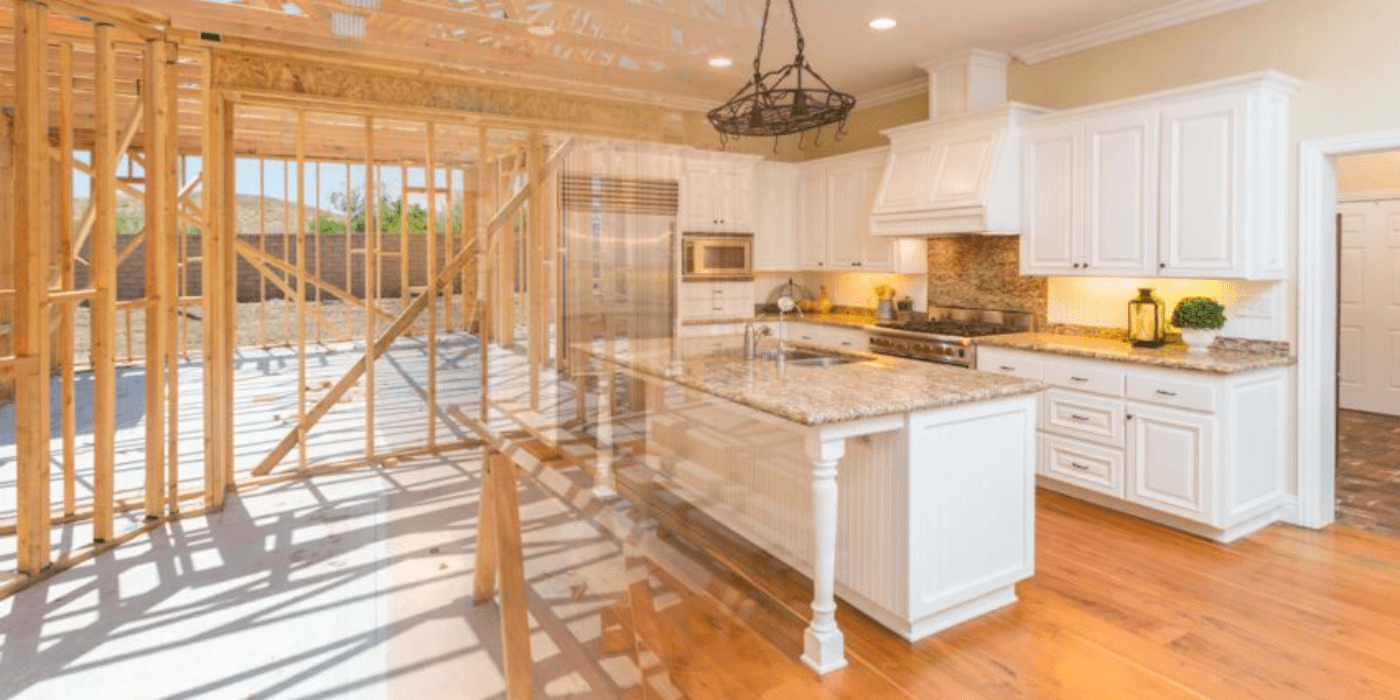Obtaining a Renovation Loan with Bad Credit: Challenges and Solutions

Introduction
In Australia, renovation loans play a crucial role in helping homeowners fund their renovation projects. These loans provide the necessary financial resources to carry out the desired improvements without straining your savings or disrupting your cash flow. Renovation loans allow you to transform your house into your dream home, making it more comfortable, functional, and visually appealing.
However, obtaining a renovation loan becomes more complicated when you have bad credit. Your credit history and credit score play a significant role in loan approval decisions. Lenders assess your creditworthiness to determine the level of risk associated with lending you money. Bad credit, characterized by a low credit score, can negatively impact your chances of loan approval and may result in higher interest rates or stricter terms.
While the impact of bad credit on loan approval can seem daunting, solutions are available to address these challenges. By understanding the factors lenders consider, implementing strategies to improve your creditworthiness, and exploring alternative lending options, you can increase your chances of obtaining a renovation loan, even with bad credit.
The Impact of Bad Credit on Renovation Loan Approval
When obtaining a renovation loan with bad credit, the impact of your credit history cannot be ignored. Credit scores play a significant role in the loan approval process, as they provide lenders with insight into your creditworthiness and ability to repay the loan. In Australia, credit scores typically range from 0 to 1,200, with higher scores indicating lower credit risk.

Bad credit can make securing a renovation loan challenging for several reasons. Firstly, lenders may view borrowers with a low credit scores as higher-risk individuals, making them hesitant to extend credit. Secondly, even if you find a lender willing to work with you, they may impose higher interest rates or stricter terms due to the perceived risk.
Additionally, lenders may subject loan applications from individuals with bad credit to increased scrutiny. They may require more documentation, proof of income, and collateral to mitigate their risk. This can make the loan application process more time-consuming and complicated.
Strategies for Overcoming Challenges and Obtaining a Renovation Loan with Bad Credit
While bad credit may present obstacles, there are strategies you can employ to overcome these challenges and increase your chances of obtaining a renovation loan.
Assessing and improving your creditworthiness
Start by assessing your credit reports for any inaccuracies or errors. Contact credit reporting agencies to rectify mistakes and ensure your credit history is accurately represented. This step is crucial, as even a small improvement in your credit score can significantly affect loan approval and interest rates.
Next, focus on reducing your outstanding debts and credit utilisation. Pay off high-interest debts and aim to keep your credit utilisation below 30%. Lenders view borrowers who responsibly manage their debts and credit as less risky.

Establishing a positive payment history is another vital step in improving your creditworthiness. Ensure you make all your payments on time, including rent, utilities, and debts. Consistent on-time payments demonstrate your commitment to financial responsibility and can positively impact your credit score.
Exploring alternative lending options
When traditional lenders are reluctant to provide a renovation loan due to bad credit, it's worth exploring alternative lending options.
Government-backed renovation loan programs, such as those offered by the National Housing Finance and Investment Corporation (NHFIC) in Australia, provide accessible financing options for individuals with bad credit. These programs often have more flexible eligibility requirements and may offer lower interest rates than conventional loans.
Peer-to-peer lending platforms are another alternative worth considering. These platforms connect borrowers directly with individual lenders willing to fund renovation projects. Peer-to-peer lending can be a viable option for individuals with bad credit, as some lenders may focus more on the borrower's ability to repay rather than their credit score.
Secured loans, where collateral is provided as security, can also be an option for borrowers with bad credit. By offering an asset such as property or a vehicle as collateral, lenders may be more willing to extend credit, as they can recoup their investment if the borrower defaults.
Seeking assistance from credit counselling agencies

Credit counselling agencies can provide valuable guidance and support for individuals with bad credit. These agencies can help you develop a personalised plan to improve your credit score and manage your debts effectively. They may negotiate with creditors on your behalf to establish repayment plans or provide financial education to help you make informed decisions.
Co-signer considerations and their impact on loan approval
A co-signer with a good credit history can significantly increase your chances of obtaining a renovation loan. A co-signer guarantees the loan and takes responsibility for repayment if you default. Lenders may be more willing to approve the loan and offer better terms when a creditworthy cosigner is involved. However, it's crucial to recognize that co-signing is a significant responsibility, and both parties should carefully consider the potential implications before proceeding.
By implementing these strategies, individuals with bad credit can improve their chances of obtaining a renovation loan and embark on their home improvement journey.
Maximising Your Renovation Loan: Planning, Budgeting, and Building a Brighter Credit Future
Once you've secured a renovation loan, making the most of it while simultaneously building a brighter credit future is essential. Here are some tips to help you maximise your loan and improve your credit:
Creating a comprehensive renovation plan

Before starting renovations, develop a detailed plan outlining your goals, desired outcomes, and budget. Consider consulting with professionals, such as architects or interior designers, to ensure your plan is realistic and aligns with your financial resources. A well-thought-out plan will help you allocate your renovation loan effectively and avoid overspending.
Budgeting effectively to avoid financial strain
Sticking to a budget is crucial during your renovation project. Keep track of your expenses and ensure that you allocate sufficient funds for each aspect of the renovation. Avoid unnecessary splurges and prioritise essential improvements to stay within your financial means. A disciplined approach to budgeting will help you avoid financial strain and ensure you can comfortably repay your renovation loan.
Comparing loan offers and terms for the best fit
Take the time to compare loan offers from different lenders, considering interest rates and terms. Look for lenders specialising in working with borrowers with bad credit, as they may offer more favourable terms. Remember that even a slightly lower interest rate can save you significant money in the long run.
Utilising professional contractors and cost-saving measures
Engaging professional contractors can help ensure your renovation project is completed to a high standard. However, it's important to strike a balance between quality and cost. Obtain multiple quotes from reputable contractors and negotiate where possible. Additionally, consider cost-saving measures such as purchasing materials during sales or opting for energy-efficient appliances that can save you money on utilities in the long term.
Managing payments and staying on track with the loan

Make your loan payments a priority to avoid falling behind or defaulting. Set up automatic payments or reminders to ensure you never miss a due date. Staying on track with your loan payments will not only help you avoid penalties and additional fees but also contribute positively to your credit history.
Building credit during the renovation process
While focusing on your renovation project, don't neglect your credit-building efforts. Continue to make all your payments on time, including credit cards, utilities, and other debts. Additionally, avoid opening new credit accounts unless necessary, as multiple credit inquiries can negatively impact your credit score.
Long-term strategies for improving credit and financial stability

Beyond the renovation project, developing long-term strategies for improving your credit and achieving financial stability is crucial. This may include creating a realistic budget, maintaining an emergency fund, and gradually paying off existing debts. Consistently practising responsible credit management habits will strengthen your creditworthiness over time and open up more opportunities for favourable loans and financial stability.
Conclusion
In conclusion, obtaining a renovation loan with bad credit may present challenges, but it's not insurmountable. By understanding the impact of bad credit on loan approval, implementing strategies to overcome challenges, and maximising your loan while building a brighter credit future, you can successfully embark on your home improvement journey and improve your financial standing. Remember, seeking guidance from credit professionals and financial advisors can provide valuable support.
Are you in need of a renovation loan? Look no further than Driva! With our extensive network of over 30 lenders, we can help you find the best deal tailored to your needs. Say goodbye to the hassle of paperwork and long queues, as our application process is 100% online and hassle-free. We pride ourselves on transparency, providing clear information on rates and fees. Don't wait any longer - obtain your renovation loan through Driva today!


.png)







